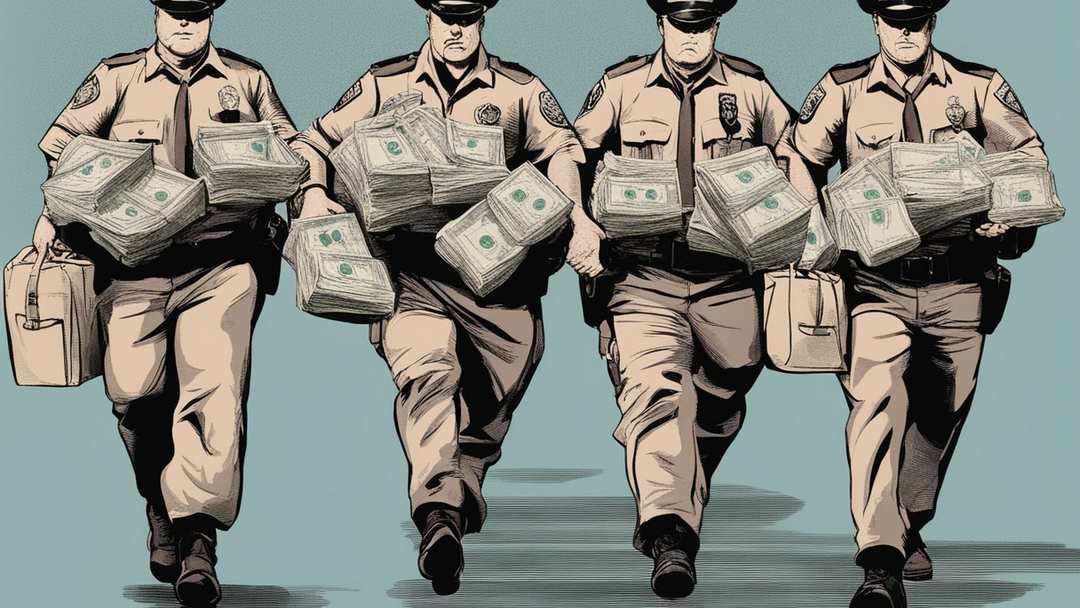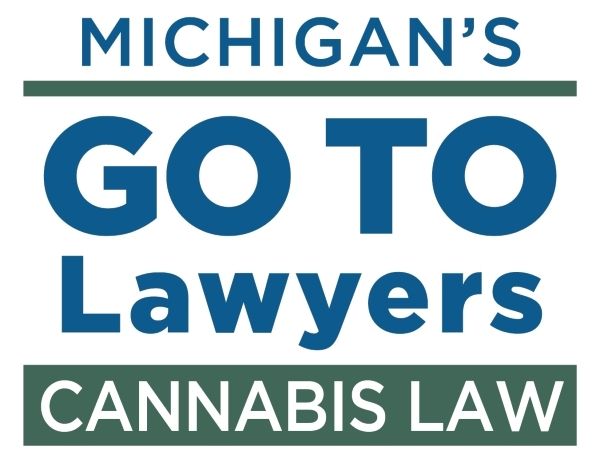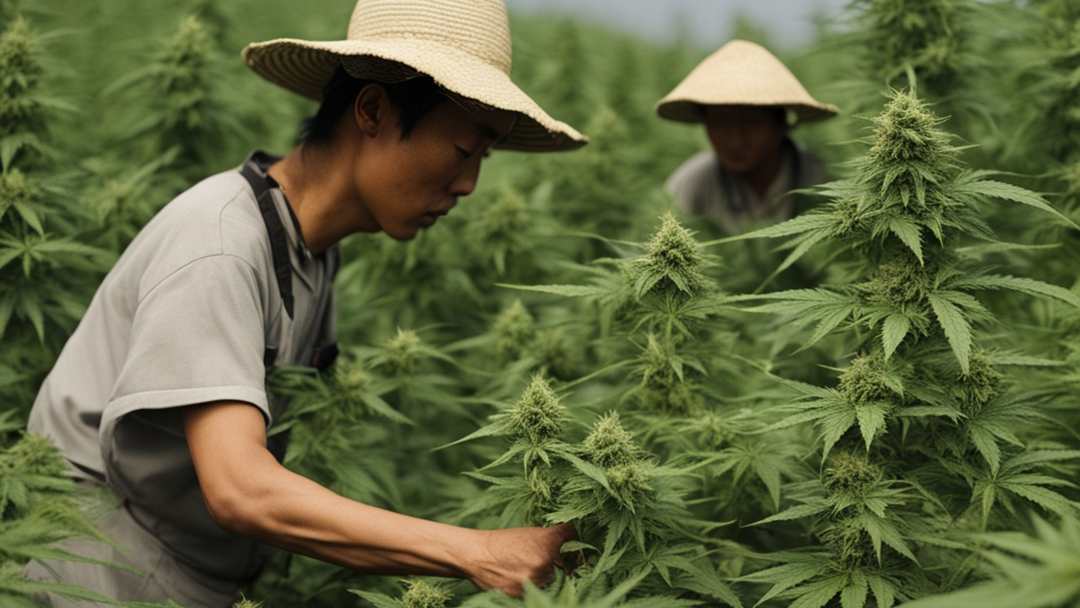A bill enacted into California law in 2024 prohibits employers from discriminating against individuals based on their off-duty and off-site use of cannabis, as it relates to their employment.
The bill provides an extra level of safeguard for marijuana users in California, but does it suggest a full prohibition on employers conducting marijuana tests in the state?
Testing
The new law, Assembly Bill 2188, clearly states that employers cannot terminate employees based on the presence of cannabis in their hair, blood, or urine. Furthermore, it is now against the law for employers to inquire about an applicant’s consumption of cannabis or marijuana.
This means that individuals who have previously used marijuana cannot face penalties for their past use. Furthermore, individuals are protected from any penalties for using marijuana outside of the workplace and during non-working hours.
Affects Mental Processes
AB 2188 often mentions the “psychoactive” properties of cannabis Defined by the World Health Organization as this -> Definition <.
While the bill provides certain protections, it remains illegal to be under the influence of marijuana or bring it into the workplace.
AB 2188 mandates drug tests that specifically target impairing effects. It is crucial to note that standard marijuana tests do not identify any factors that could negatively impact an employee’s performance.
While it is widely acknowledged that employees should not arrive at a worksite while under the influence or impaired, it is important to note that most cannabis tests only indicate the presence of the nonpsychoactive cannabis metabolite.
These test results do not demonstrate any correlation with job impairment. However, it is crucial to maintain a responsible and safe working environment by prioritizing employee well-being and adhering to workplace policies regarding substance use and impairment.
However, it should be noted that there are additional types of tests that are allowed and these tests do not assess the existence of nonpsychoactive cannabis metabolites.
The purpose of drug tests is to identify potentially impaired employees. These tests include impairment tests that measure an individual employee’s performance against their own baseline, as well as tests that detect the presence of THC in an individual’s bodily fluids, as indicated by the bill.
Exemption
This law does not apply to employers in the building and construction trades or employees hired for “positions that require a federal government background investigation.”
Additionally, state and federal laws remain that test applicants and employees for controlled substances.
Have your rights been violated?
Have your driving priviledges been revoked?
Has your professional license been suspended?
Have you been charged with a crime?
Call our office to see if we can help
Komorn Law 248-357-2550
Here’s the California Law below and the link here
Assembly Bill No. 2188
CHAPTER 392
An act to add Section 12954 to the Government Code, relating to employment.
[ Approved by Governor September 18, 2022. Filed with Secretary of State September 18, 2022. ]
LEGISLATIVE COUNSEL’S DIGEST
AB 2188, Quirk. Discrimination in employment: use of cannabis.
Existing law, the California Fair Employment and Housing Act, protects and safeguards the right and opportunity of all persons to seek, obtain, and hold employment without discrimination, abridgment, or harassment on account of race, religious creed, color, national origin, ancestry, physical disability, mental disability, medical condition, genetic information, marital status, sex, gender, gender identity, gender expression, age, sexual orientation, or military and veteran status. The act prohibits various forms of employment discrimination and empowers the Civil Rights Department to investigate and prosecute complaints alleging unlawful practices.
This bill, on and after January 1, 2024, would also make it unlawful for an employer to discriminate against a person in hiring, termination, or any term or condition of employment, or otherwise penalize a person, if the discrimination is based upon the person’s use of cannabis off the job and away from the workplace, except for preemployment drug screening, as specified, or upon an employer-required drug screening test that has found the person to have nonpsychoactive cannabis metabolites in their hair, blood, urine, or other bodily fluids. The bill would exempt certain applicants and employees from the bill’s provisions, including employees in the building and construction trades and applicants and employees in positions requiring a federal background investigation or clearance, as specified. The bill would specify that the bill does not preempt state or federal laws requiring applicants or employees to be tested for controlled substances as a condition of employment, receiving federal funding or federal licensing-related benefits, or entering into a federal contract.
DIGEST KEY
Vote: majority Appropriation: no Fiscal Committee: yes Local Program: no
BILL TEXT
THE “PEOPLE” OF THE STATE OF CALIFORNIA DO ENACT AS FOLLOWS:
SECTION 1.
The Legislature finds and declares both of the following:
(a) Tetrahydrocannabinol (THC) is the chemical compound in cannabis that can indicate impairment and cause psychoactive effects. After tetrahydrocannabinol is metabolized, it is stored in the body as a nonpsychoactive cannabis metabolite. These metabolites do not indicate impairment, only that an individual has consumed cannabis in the last few weeks.
(b) The intent of drug tests is to identify employees who may be impaired. While there is consensus that an employee should not arrive at a worksite high or impaired, when most tests are conducted for cannabis, the results only show the presence of the nonpsychoactive cannabis metabolite and have no correlation to impairment on the job.
(c) As science has improved, employers now have access to multiple types of tests that do not rely on the presence of nonpsychoactive cannabis metabolites. These alternative tests include impairment tests, which measure an individual employee against their own baseline performance and tests that identify the presence of THC in an individual’s bodily fluids.
SEC. 2. Section 12954 is added to the Government Code, to read:
12954. (a) It is unlawful for an employer to discriminate against a person in hiring, termination, or any term or condition of employment, or otherwise penalizing a person, if the discrimination is based upon any of the following:
(1) The person’s use of cannabis off the job and away from the workplace. This paragraph does not prohibit an employer from discriminating in hiring, or any term or condition of employment, or otherwise penalize a person based on scientifically valid preemployment drug screening conducted through methods that do not screen for nonpsychoactive cannabis metabolites.
(2) An employer-required drug screening test that has found the person to have nonpsychoactive cannabis metabolites in their hair, blood, urine, or other bodily fluids.
(b) Nothing in this section permits an employee to possess, to be impaired by, or to use, cannabis on the job, or affects the rights or obligations of an employer to maintain a drug- and alcohol-free workplace, as specified in Section 11362.45 of the Health and Safety Code, or any other rights or obligations of an employer specified by federal law or regulation.
(c) This section does not apply to an employee in the building and construction trades.
(d) This section does not apply to applicants or employees hired for positions that require a federal government background investigation or security clearance in accordance with regulations issued by the United States Department of Defense pursuant to Part 117 of Title 32 of the Code of Federal Regulations, or equivalent regulations applicable to other agencies.
(e) This section does not preempt state or federal laws requiring applicants or employees to be tested for controlled substances, including laws and regulations requiring applicants or employees to be tested, or the manner in which they are tested, as a condition of employment, receiving federal funding or federal licensing-related benefits, or entering into a federal contract.
(f) This section shall become operative on January 1, 2024.
More Posts

Do Passengers in a Vehicle have 4th Amendment Rights?
Do Passengers have 4th Amendment Rights?Michigan Supreme Court Limits Police Ability to Search Passenger Property in CarsBackground Mead was a passenger in a car and had just met the driver, who offered him a ride. When the police stopped the vehicle and ordered both...

Do Students Have 4th Amendment Rights in Schools
Students and 4th Amendment RightsStudents are entitled to a right to be safe from unreasonable searches and seizures even within school premises, as ruled by the Supreme Court of the United States. However, these rights are somewhat limited for students, allowing...

Forfeiture Law: SCOTUS and Sixth Circuit Issue Landmark Rulings
Forfeiture Law in Focus: SCOTUS and Sixth Circuit Issue Landmark RulingsThe landscape of forfeiture law has been significantly shaped by recent decisions from the U.S. Supreme Court and the Sixth Circuit Court of Appeals. These rulings, in the cases of United States v...

Facial Recognition and Wrongful Arrests
Facial RecognitionHow Technology Can Lead to Mistaken-Identity Arrests Facial recognition technology has become increasingly prevalent in law enforcement, but its use raises critical questions about civil liberties and accuracy. One landmark case sheds light on the...

People v. Chandler Case: Protecting Fourth Amendment Rights
Court of Appeals of Michigan PEOPLE of the State of Michigan, Plaintiff-Appellee, v. Javarian CHANDLER, Defendant-Appellant. No. 368736 Decided: June 27, 2024Before: Borrello, P.J., and Swartzle and Young, JJ. Introduction In the People v. Chandler case, the Michigan...

MI Lawyer Weekly – Michigan’s Go To Lawyers for Cannabis Law
Please join us in congratulating our inaugural Michigan’s Go To Lawyer for cannabis law. Michael Komorn, Komorn Law, Farmington HillsMichigan Lawyers Weekly is pleased to announce the inaugural “Go To Lawyers” for cannabis law. Now in its fifth year, the “Go To...

Chinese-funded marijuana farms springing up across the U.S.
Inside the Chinese-funded and staffed marijuana farms springing up across the U.S.During a farm inspection, New Mexico state special agents discovered an excessive number of cannabis plants in violation of state laws. Subsequent visits revealed dozens of underfed and...

AGs – Ex DEA Leaders for Push Public Hearing On Marijuana Rescheduling
State AGs And Former DEA Leaders Push Agency To Hold Public Hearing On Marijuana Rescheduling ProposalIn a filing with the federal government ahead of a key deadline this week, a group of former Drug Enforcement Administration (DEA) leaders is asking the agency to...

I got a DUI while driving my dad’s boat – Will they take it?
I was out driving my dad's boat on the lake and I got caught drinking. Can they take the boat away from my dad who was not with me?Happy Father's Day - DadNo, in most cases, they likely won't take your dad's boat away for you getting a DUI while driving it. They Could...

Seattle settles case involving – the rights of nature
The Rights of NatureSeattle settled a lawsuit brought by the Sauk-Suiattle Tribe on behalf of salmon harmed by dams on the Skagit River. This is one of the first "rights of nature" cases in the US, and the tribe argued that the lack of fish passage measures violated...











